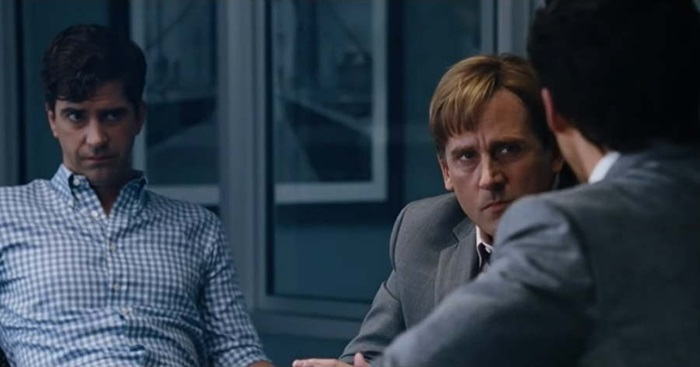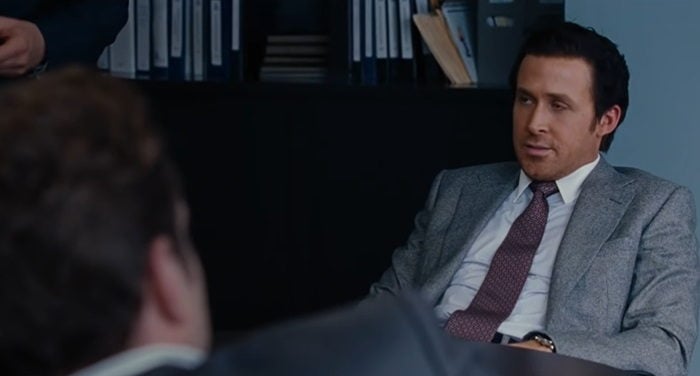The Big Shortis a 2015 film directed by Adam McKay, based on the non-fiction book of the same name by Michael Lewis. The film tells the story of the 2008 financial crisis and the individuals who predicted it and profited from it by betting against the housing market. The ending of The Big Short is bittersweet; it highlights the financial success of the characters who bet against the housing market, while also underlining the devastating consequences of the 2008 financial crisis on ordinary people.
The Setting and Characters

The film's conclusion begins with the collapse of Lehman Brothers in September 2008, which serves as a major turning point in the financial crisis. As the housing market continues to deteriorate and the financial system becomes increasingly unstable, the characters who had bet against the market start to see the signs that their investments are paying off.
Dr. Michael Burry (Christian Bale): He's the first to cash in on his bet against the housing market. Despite being portrayed as an eccentric character, his foresight and unconventional investment strategies pay off. In the film, Burry's hedge fund cashes out their Credit Default Swaps (CDS) and makes a substantial profit. As the market continues to plummet, he begins to receive the funds, much to the chagrin of the banks and financial institutions that sold him the CDS contracts.
Mark Baum (Steve Carell): Baum, along with his team, is the first to discover the implications of the CDO market's instability. He watches as the crisis unfolds and becomes increasingly disillusioned with the corrupt and unethical practices of the banking industry. His group begins to see the impact on everyday people, and this leads to a moral awakening for Baum. He decides to sell their CDS holdings and cash in on the impending collapse. However, despite the potential financial gains, he remains deeply disturbed by the devastation caused by the financial crisis.

Jared Vennett (Ryan Gosling):< Vennett, who initiated the trade with Baum, is also on the winning side of the bet. He brags about the millions he's set to make but is also reflective about the human suffering caused by the crisis. He acknowledges the unfairness of profiting from the misery of others.
Charlie Geller (John Magaro) and Jamie Shipley (Finn Wittrock): These young investors, who were mentored by Ben Rickert (Brad Pitt), also start to see significant profits as the market crashes. Geller and Shipley, originally idealistic and driven by a desire for justice, realize that their actions are contributing to the chaos, and they grapple with the moral implications of their success.
The Ending
The ending of The Big Short juxtaposes the jubilation of the protagonists' financial victories with the real-world consequences of the financial crisis. The film underscores the human cost of the crisis by showing scenes of people losing their homes, jobs, and savings. The characters' initial glee at their financial success becomes tinged with a sense of guilt and responsibility for the widespread suffering caused by the crisis.
Throughout the conclusion of the film, there is a sense of moral and emotional reckoning for the characters. The financial gain is undeniable, but the weight of their actions and the knowledge that they profited from a system that was rigged against the average person weighs heavily on their consciences. The Big Short highlights the inherent contradictions and moral complexity of profiting from a system that they were morally opposed to in the first place.
The movie ends with a somber tone, as it becomes evident that the financial crisis is far from over. The characters are left with a mix of emotions—relief at having been proven right and anger at the injustices of the system. They also grapple with the question of what comes next.
In a concluding scene, Mark Baum visits a seemingly abandoned housing development, where he encounters a group of workers tearing down a house. This symbolic moment represents the destruction of the unsustainable housing bubble. Baum reflects on the fact that the people responsible for the crisis escaped without consequences, and he questions what will change in the financial industry.
The Big Short closes with on-screen text that informs the audience of the continuing fallout from the financial crisis. It mentions that many of the banks and institutions that caused the crisis were bailed out, some even receiving bigger bonuses after the crash. The concluding text also provides statistics about the number of people who lost their homes and jobs, highlighting the devastating impact on ordinary citizens.
The ending of the The Big Short leaves the audience with a sobering and critical reflection on the financial crisis and its ongoing repercussions. It serves as a reminder of the moral complexities of the financial world and the importance of holding those responsible for economic catastrophes accountable.






